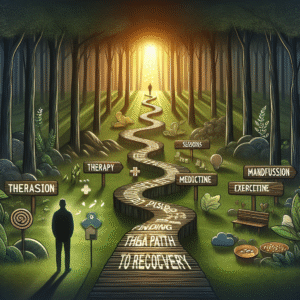Money is tied to our fears, our hopes, our pasts, and because of that, many of us walk around with deeply held beliefs about money that simply aren’t true. These financial myths often feel like common sense because they’re so widespread, but in reality, they can quietly drain your wallet and keep you from building the life you want. The worst part? You may not even realize you’re falling for them.
Myth #1: Renting Is Throwing Money Away
You’ve probably heard this one before: “Why rent when you can buy? At least when you buy, you’re building equity!” While homeownership can be a great investment for some, this blanket advice doesn’t hold up across the board.
Renting isn’t throwing money away—it’s paying for a place to live, just like owning does. What people forget is that buying a home comes with significant hidden costs: property taxes, insurance, maintenance, repairs, and often higher utility bills. Plus, if you move often or aren’t planning to stay put for at least five to seven years, buying can actually cost you more than renting once you factor in closing costs and market volatility.
The truth: Renting can be the smarter financial move depending on your life stage, job flexibility, and the housing market in your area. You’re not “throwing away” money any more than you are by paying for groceries or transportation—those are all necessities, not wastes.
Myth #2: You Need to Carry a Credit Card Balance to Build Credit
This myth refuses to die, and it’s a dangerous one. Many people believe that keeping a balance on their credit card and paying interest each month is necessary to improve their credit score. That’s simply false.
Carrying a balance and paying interest only benefits the credit card companies—not you. What actually impacts your credit score are your payment history and your credit utilization ratio (how much of your available credit you’re using). As long as you’re using your card regularly and paying it off in full and on time each month, you’re doing exactly what credit scoring models want to see.
The truth: You don’t need to be in debt to build credit. In fact, the best thing you can do for your score—and your wallet—is to use your credit responsibly and avoid interest whenever possible.
Myth #3: Budgeting Is Restrictive
A lot of people hear the word “budget” and immediately associate it with guilt, sacrifice, and saying “no” to fun. That mindset keeps many from taking control of their finances, which ironically leads to more stress and less freedom.
But the point of a budget isn’t to punish you—it’s to empower you. When done right, a budget reflects your priorities and gives you the ability to spend intentionally, rather than impulsively. It’s a tool that helps you say “yes” to the things that truly matter by saying “not now” to the things that don’t.
The truth: A budget isn’t a financial straightjacket. It’s a plan for your money that actually gives you more control, not less.
Myth #4: Investing Is Only for the Rich
Many people assume you need thousands of dollars to start investing. This belief keeps folks on the sidelines, missing out on years—or even decades—of potential compound growth.
But thanks to technology and platforms that allow fractional shares and no-minimum investing, you can start investing with as little as $5. What’s even more important than how much you invest is when you start. The earlier you begin, the more time your money has to grow, even in small amounts.
The truth: Investing is not an exclusive club. It’s one of the most powerful tools you have to build long-term wealth, and the barrier to entry is lower than it’s ever been.
Myth #5: You Should Pay Off Your Mortgage as Fast as Possible
At first glance, this sounds smart—less debt is always better, right? But in some cases, rushing to pay off a low-interest mortgage can actually be a poor use of your extra cash, especially if you’re neglecting retirement savings or an emergency fund in the process.
When mortgage rates are low (say, under 4%), your money could potentially earn a better return if invested elsewhere. Plus, paying down a mortgage aggressively means your cash is tied up in home equity, which isn’t easy to access if you suddenly need it.
The truth: Being debt-free is a worthy goal, but not always the most strategic one. Consider your full financial picture before putting every spare dollar toward your mortgage.
Myth #6: If You Earn More, You’ll Automatically Save More
It seems logical—more income should mean more savings. But many people find that as their income increases, so do their expenses. This is known as lifestyle creep, and it can quietly erode your financial progress.
Without conscious effort, it’s easy to upgrade everything from your car to your clothing to your vacations, telling yourself you “deserve it.” While there’s nothing wrong with enjoying the fruits of your labor, doing so without boundaries can leave you just as financially stressed at six figures as you were at half that.
The truth: Saving isn’t about how much you earn—it’s about how much you keep. If you don’t manage your spending, no amount of income will save you.
Myth #7: You Don’t Need an Emergency Fund if You Have a Credit Card
Credit cards can be helpful in emergencies, but they are not a replacement for an actual emergency fund. Relying on debt during a crisis just adds another problem to your plate—interest payments.
An emergency fund provides peace of mind and a buffer between you and financial disaster. It gives you options. Whether it’s a car repair, medical bill, or sudden job loss, having savings means you can respond to life’s curveballs without going deeper into debt.
The truth: A credit card is a tool; an emergency fund is a safety net. You need both—but don’t confuse one for the other.
The stories we tell ourselves about money have real consequences. The myths we cling to, often inherited from family or repeated by well-meaning friends, can quietly sabotage our financial goals. But the good news is: once you see these myths for what they are, you can start making smarter, more informed choices.
Financial wisdom doesn’t come from earning more—it comes from understanding more. So take a moment to question the beliefs you’ve been carrying. Some of them might just be costing you more than you think.






